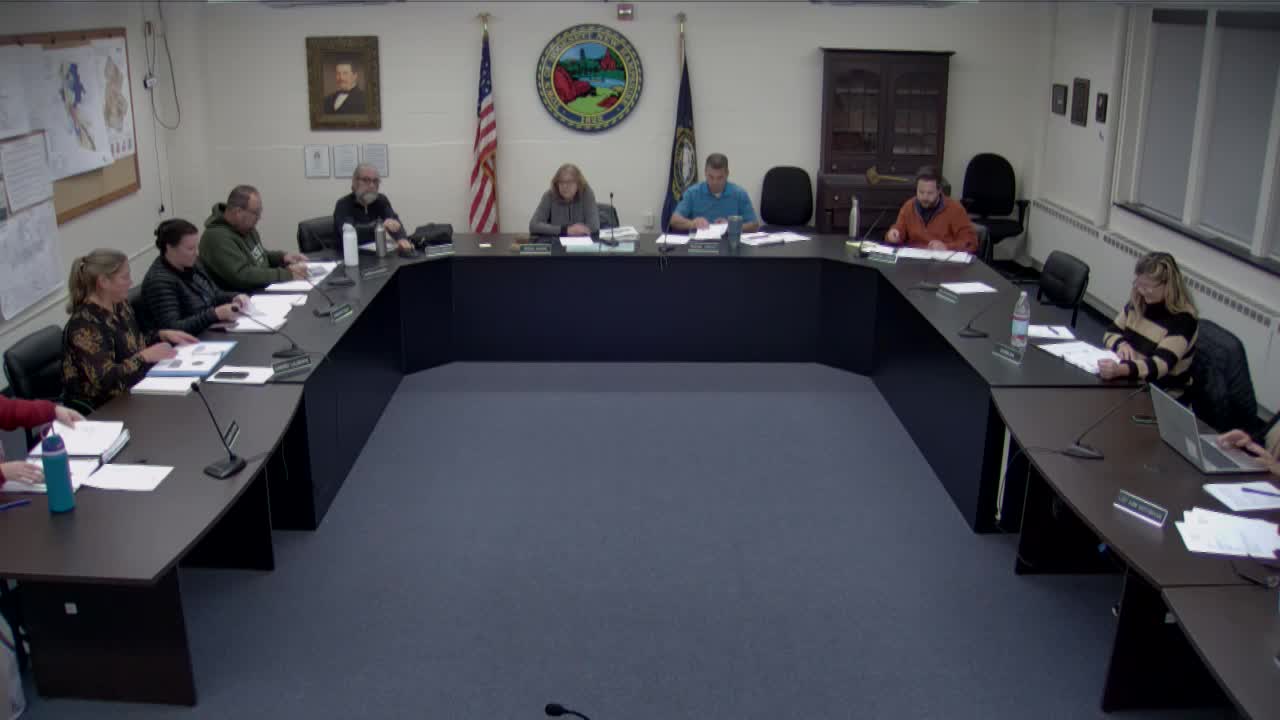Wastewater superintendent warns new NPDES rules add testing and reporting burdens to Hooksett plant
Get AI-powered insights, summaries, and transcripts
Subscribe
Summary
Ken Conner, superintendent of the Hooksett wastewater treatment plant, told the Budget Committee the plant treats about 2.2 million gallons per day and faces significant new regulatory testing and reporting requirements that have increased staff and budgetary pressures.
Ken Conner, superintendent of the Hooksett wastewater treatment plant, told the Budget Committee the plant treats about 2.2 million gallons per day using an activated‑sludge fixed‑film process and is completing several equipment upgrades to reduce operating costs.
Conner said the plant completed a solids‑handling upgrade in September meant to reduce hauling to the regional transfer facility and cut disposal costs. He told members the plant will replace four 17‑year‑old mixers in January with more efficient motors and will install two new sludge blowers rated at about 26 horsepower to replace existing 100‑horsepower motors. "We're gonna put 26 horsepower motors on the new ones. So it'll save us a lot of money there," Conner said.
The superintendent said the plant inspected and maintains about 78 miles of sewer line, 1,600 manholes and six pump stations, and that a new camera system came into service the week of the meeting. He said a new force main from Martins Ferry will be put out to bid to move the line away from the river and railroad tracks and behind a berm on the Manchester Sand property.
Conner warned the committee that a revised NPDES permit issued in January carries stricter discharge requirements and a large administrative load. "It is stricter discharge requirements that we were expecting. But what I was not expecting was that 456 additional tests a year we have to do and a 134 additional reports I have to do," he said, and added that laboratory work and reporting have shifted staff time away from field work. Conner said the lab is staffed at roughly 1.5 full‑time equivalents.
On budget figures, Conner pointed to a modest operations increase (about 3.34% for operations over two years) but highlighted a 13.23% rise in the office line driven by a one‑time migration to newer billing software after the vendor stopped supporting the 22‑year‑old system. He said that cost should largely drop out next year once only maintenance costs remain. Conner also noted that higher utility demand and distribution charges have reduced the savings the town previously saw from on‑site solar production.
Committee members asked about options to reduce postage costs, the town's online payment option, fuel procurement and whether the town can access the state fuel shed. Conner said the plant already uses a pay‑online system and the town uses a WEX card system to obtain market pump prices without state fuel taxes; he confirmed the state option remains available but may be cumbersome to access.
Conner also described "reclamation of land" activity as maintaining easements to ensure access for maintenance and emergency vehicles where sewer lines run along waterways.
The presentation did not include any committee action or formal vote. Conner said some capital projects—like the Martins Ferry force main—will be advertised for bid early next year.
